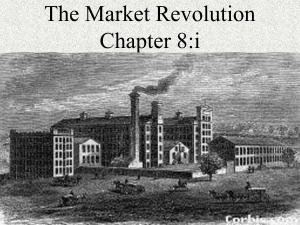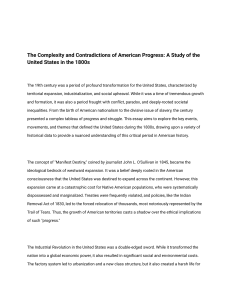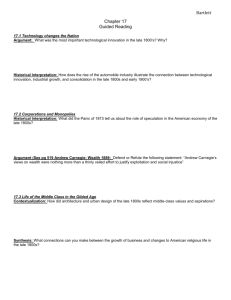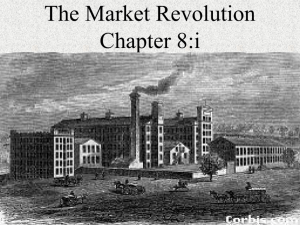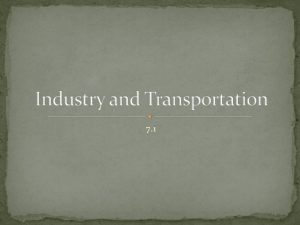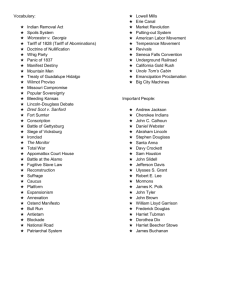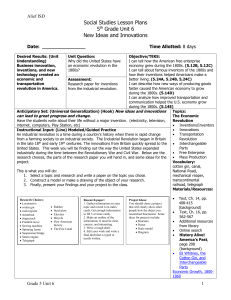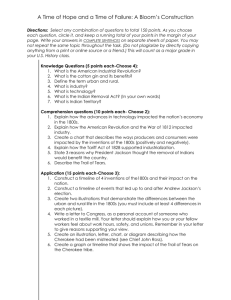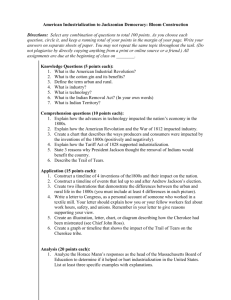The Market Revolution (1815
advertisement
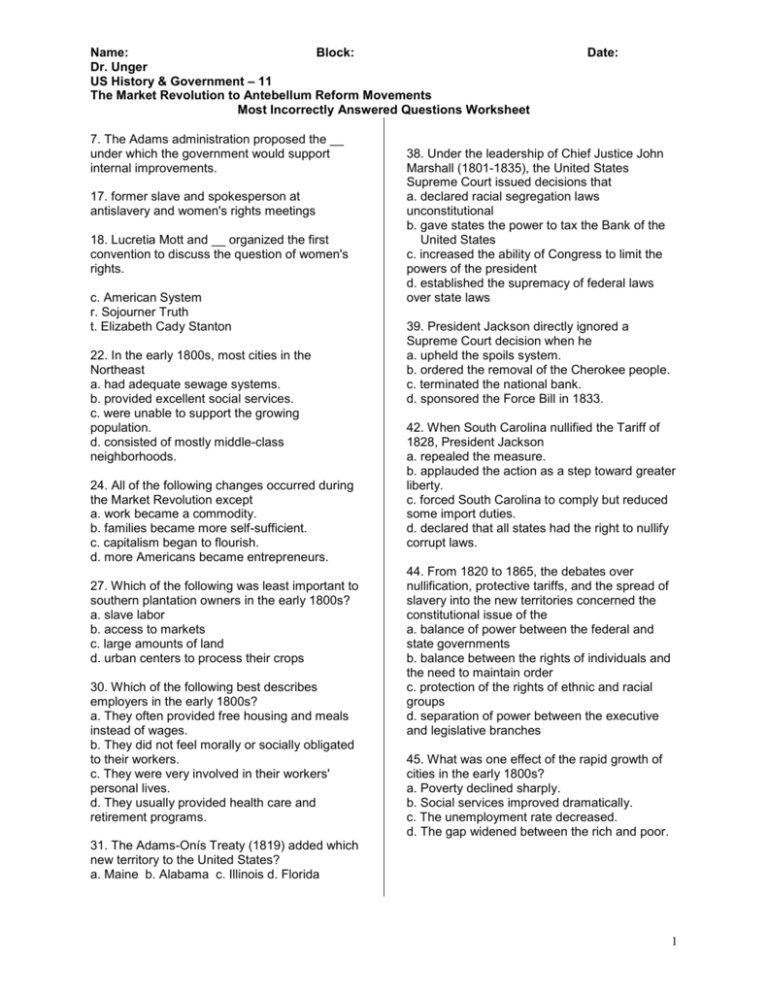
Name: Block: Dr. Unger US History & Government – 11 The Market Revolution to Antebellum Reform Movements Most Incorrectly Answered Questions Worksheet 7. The Adams administration proposed the __ under which the government would support internal improvements. 17. former slave and spokesperson at antislavery and women's rights meetings 18. Lucretia Mott and __ organized the first convention to discuss the question of women's rights. c. American System r. Sojourner Truth t. Elizabeth Cady Stanton 22. In the early 1800s, most cities in the Northeast a. had adequate sewage systems. b. provided excellent social services. c. were unable to support the growing population. d. consisted of mostly middle-class neighborhoods. 24. All of the following changes occurred during the Market Revolution except a. work became a commodity. b. families became more self-sufficient. c. capitalism began to flourish. d. more Americans became entrepreneurs. 27. Which of the following was least important to southern plantation owners in the early 1800s? a. slave labor b. access to markets c. large amounts of land d. urban centers to process their crops 30. Which of the following best describes employers in the early 1800s? a. They often provided free housing and meals instead of wages. b. They did not feel morally or socially obligated to their workers. c. They were very involved in their workers' personal lives. d. They usually provided health care and retirement programs. Date: 38. Under the leadership of Chief Justice John Marshall (1801-1835), the United States Supreme Court issued decisions that a. declared racial segregation laws unconstitutional b. gave states the power to tax the Bank of the United States c. increased the ability of Congress to limit the powers of the president d. established the supremacy of federal laws over state laws 39. President Jackson directly ignored a Supreme Court decision when he a. upheld the spoils system. b. ordered the removal of the Cherokee people. c. terminated the national bank. d. sponsored the Force Bill in 1833. 42. When South Carolina nullified the Tariff of 1828, President Jackson a. repealed the measure. b. applauded the action as a step toward greater liberty. c. forced South Carolina to comply but reduced some import duties. d. declared that all states had the right to nullify corrupt laws. 44. From 1820 to 1865, the debates over nullification, protective tariffs, and the spread of slavery into the new territories concerned the constitutional issue of the a. balance of power between the federal and state governments b. balance between the rights of individuals and the need to maintain order c. protection of the rights of ethnic and racial groups d. separation of power between the executive and legislative branches 45. What was one effect of the rapid growth of cities in the early 1800s? a. Poverty declined sharply. b. Social services improved dramatically. c. The unemployment rate decreased. d. The gap widened between the rich and poor. 31. The Adams-Onís Treaty (1819) added which new territory to the United States? a. Maine b. Alabama c. Illinois d. Florida 1 Name: Block: Dr. Unger US History & Government – 11 The Market Revolution to Antebellum Reform Movements Date: 47. Reformers believed that temperance would help prevent all of the following except a. employee absenteeism. b. moral decay. c. domestic violence. d. illiteracy. 48. Why did most African American abolitionists oppose colonization? a. They wanted to be completely free of United States control. b. They wanted to remain in the United States. c. They wanted the same rights as Native Americans. d. They considered themselves American and wanted to maintain the same standard of living that they had enjoyed hitherto. 49. Which of the following had the greatest influence on woman suffragists in the 1840s? a. utopian communities b. the temperance and abolition movements c. the underground railroad d. the cult of domesticity and Transcendentalism 2

